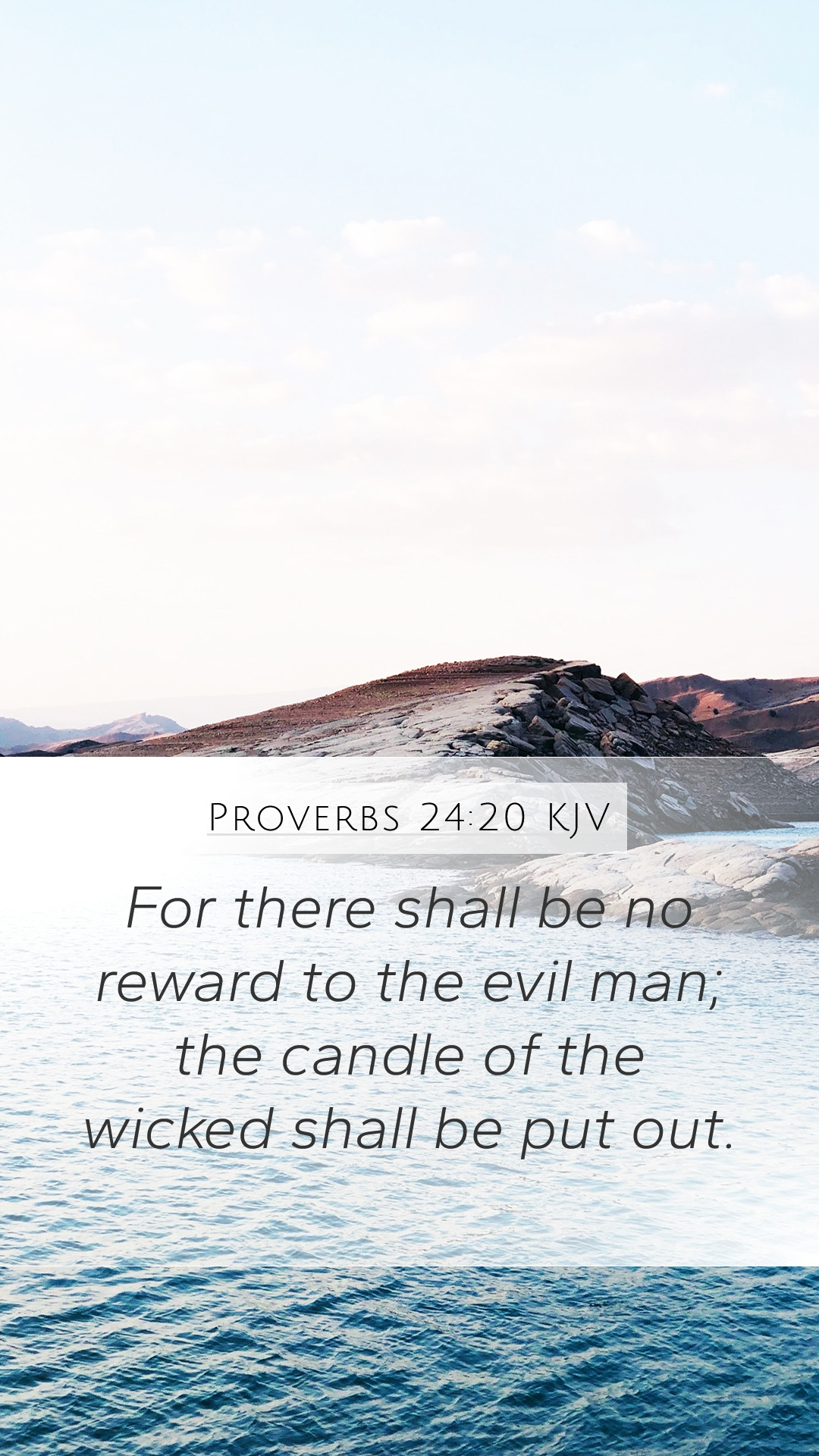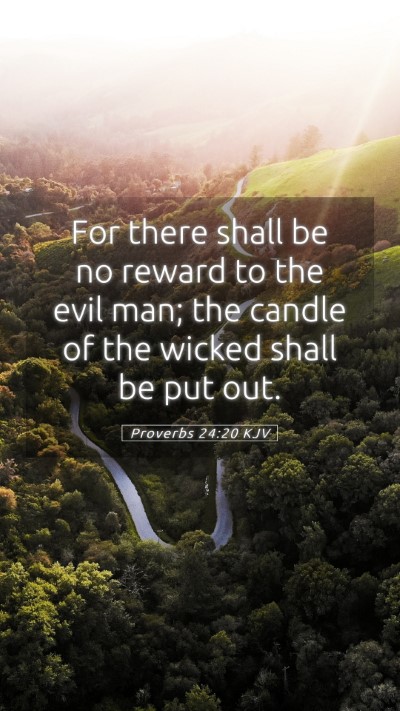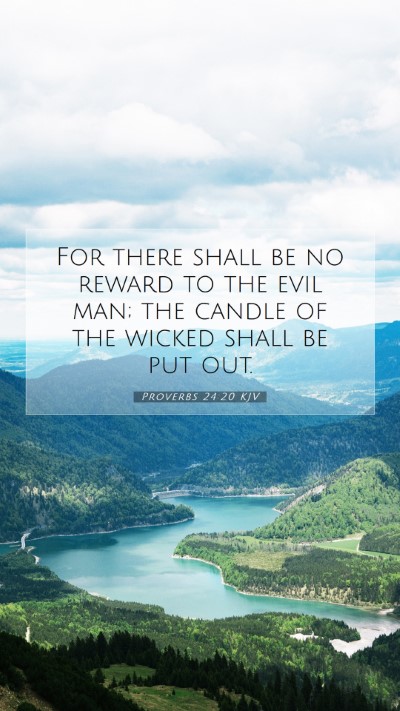Understanding Proverbs 24:20
Bible Verse: Proverbs 24:20 - "For there shall be no reward to the evil man; the candle of the wicked shall be put out."
Overview
This verse from Proverbs emphasizes a significant truth about the fate of the wicked in contrast to the righteous. The declarations made in this scripture focus on the eventual outcome for those who engage in evil, highlighting a moral and spiritual law that governs human conduct.
Bible Verse Meanings and Interpretations
The meaning of this verse can be analyzed through various biblical commentaries:
-
Matthew Henry: Henry explains that the verse underscores the idea that the wicked, through their own actions, will ultimately face consequences. He emphasizes that there is an inherent justice in the universe which ensures that the evil man's ambitions and efforts lead to failure and darkness.
-
Albert Barnes: Barnes elaborates that the “candle of the wicked” symbolizes life and prosperity. When he states that it shall be put out, it signifies a complete loss of hope and vitality for those who practice deceit and corruption. Prosperity in wickedness is temporary and will inevitably be extinguished.
-
Adam Clarke: Clarke offers a perspective that highlights the futility of seeking gains through wicked means. He draws attention to the spiritual blindness of the wicked, noting that their rewards are hollow and transient, leading to ultimate despair and spiritual death, which echoes the verse's theme.
Key Themes
-
Justice and Retribution: This verse addresses the laws of divine justice, indicating that while the wicked may seem to prosper for a time, their judgement will arrive, ending in their downfall.
-
Light and Darkness: The imagery of a candle reflecting light is contrasted with the extinguishing of that light, representing hope, goodness, and life versus despair, evil, and death.
-
Temporary Gains: It presents the idea that any temporary gains achieved through evil actions are unsustainable and ultimately lead to ruin.
Applications in Daily Life
Understanding this scripture provides meaningful insights for personal reflection and moral living. Here are some applications:
- Personal Integrity: Individuals are encouraged to uphold integrity and righteousness in their personal and professional lives, avoiding shortcuts that lead to evil gains.
- Moral Choices: It serves as a reminder to make choices that align with ethical teachings, suggesting that righteousness leads to lasting fulfillment.
- Hope for the Righteous: The verse also instills hope in the faithful, affirming that their paths lead to light and reward, contrasting the fate of the wicked.
Historical Context of Proverbs 24:20
Proverbs is part of the wisdom literature of the Old Testament, intended to guide ethical and moral living. It was written during a time when the community faced various challenges, including moral decline and injustice. The teachings encapsulate principles that are timeless and applicable in any age, stressing the importance of wisdom in governance and community conduct.
Bible Cross References
- Job 18:5-21: Discusses the fate of the wicked and the consequences of their actions.
- Psalm 37:10-11: Promises that the wicked will wither away and the meek will inherit the earth.
- Proverbs 11:21: Emphasizes that the wicked will not go unpunished.
- Galatians 6:7: Echoes the principle that a man reaps what he sows.
- Isaiah 57:20-21: Illustrates the wicked as being restless and the peace offered to the righteous.
Conclusion
The verse Proverbs 24:20 serves as a strong reminder of the implications of our choices. The summary provided through public domain commentaries illuminates the lasting impacts of living a righteous life versus a wicked one. Those studying this scripture can find wisdom applicable not only to their personal lives but also in understanding the broader implications of righteousness in society.


